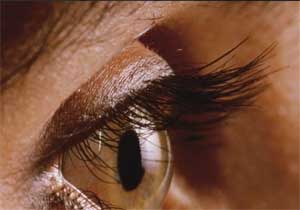- Home
- Editorial
- News
- Practice Guidelines
- Anesthesiology Guidelines
- Cancer Guidelines
- Cardiac Sciences Guidelines
- Critical Care Guidelines
- Dentistry Guidelines
- Dermatology Guidelines
- Diabetes and Endo Guidelines
- Diagnostics Guidelines
- ENT Guidelines
- Featured Practice Guidelines
- Gastroenterology Guidelines
- Geriatrics Guidelines
- Medicine Guidelines
- Nephrology Guidelines
- Neurosciences Guidelines
- Obs and Gynae Guidelines
- Ophthalmology Guidelines
- Orthopaedics Guidelines
- Paediatrics Guidelines
- Psychiatry Guidelines
- Pulmonology Guidelines
- Radiology Guidelines
- Surgery Guidelines
- Urology Guidelines
Laser Treatment Appears to Reduce Eye Floater Symptoms: JAMA Ophthalmology

Patients reported improvement in symptoms of eye floaters after treatment with a laser, according to a study published by JAMA Ophthalmology.
Floaters become more prevalent with age and although most patients grow accustomed to them, many find them bothersome, and they can worsen visual quality. Three management options exist for floaters: patient education and observation; surgery; and the laser procedure, YAG vitreolysis, of which there are limited published studies on its effectiveness for treating floaters.
Chirag P. Shah, M.D., M.P.H., and Jeffrey S. Heier, M.D., of the Ophthalmic Consultants of Boston, randomly assigned 52 patients (52 eyes) to receive YAG laser vitreolysis (n = 36) in one session or a sham (placebo) laser treatment (control; n = 16).
Six months after treatment, the YAG group reported significantly greater improvement in self-reported floater-related visual disturbance (54 percent) compared with sham controls (9 percent). A total of 19 patients (53 percent) in the YAG laser group reported significantly or completely improved symptoms vs 0 individuals in the sham group. Several measures of quality of life also improved compared with those in the sham laser group, including general vision and independence. No differences in adverse events between groups were identified.
A limitation of the study was its small sample size and short follow-up period.
"Greater confidence in these outcomes may result from larger confirmatory studies of longer duration," the authors write.
For more details click on the link : Chirag P. Shah, Jeffrey S. Heier. YAG Laser Vitreolysis vs Sham YAG Vitreolysis for Symptomatic Vitreous Floaters. JAMA Ophthalmology, 2017; DOI: 10.1001/jamaophthalmol.2017.2388

Disclaimer: This site is primarily intended for healthcare professionals. Any content/information on this website does not replace the advice of medical and/or health professionals and should not be construed as medical/diagnostic advice/endorsement or prescription. Use of this site is subject to our terms of use, privacy policy, advertisement policy. © 2020 Minerva Medical Treatment Pvt Ltd